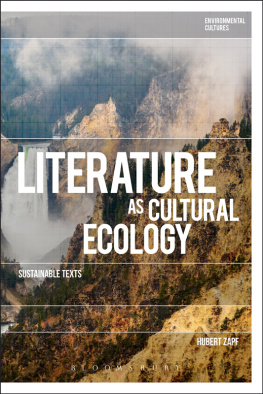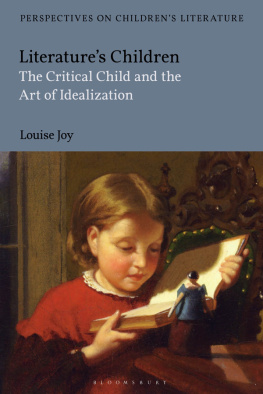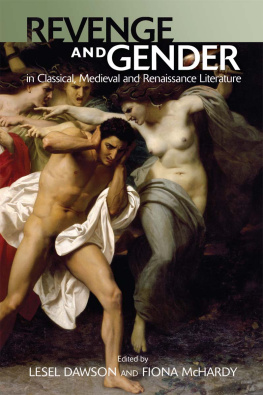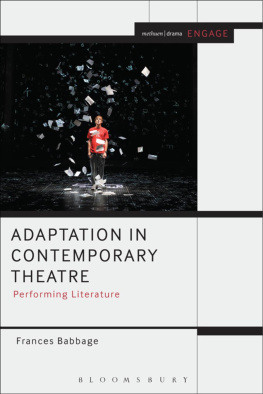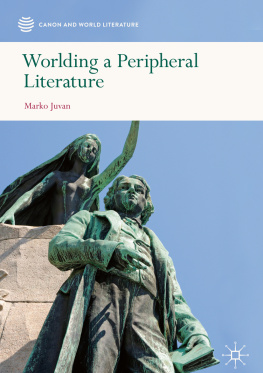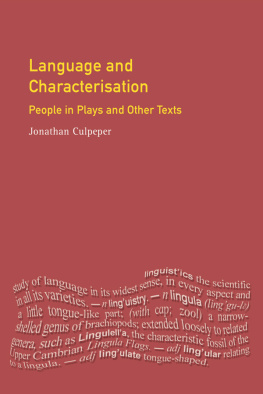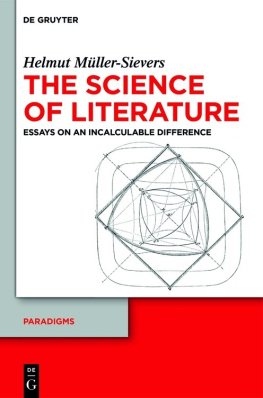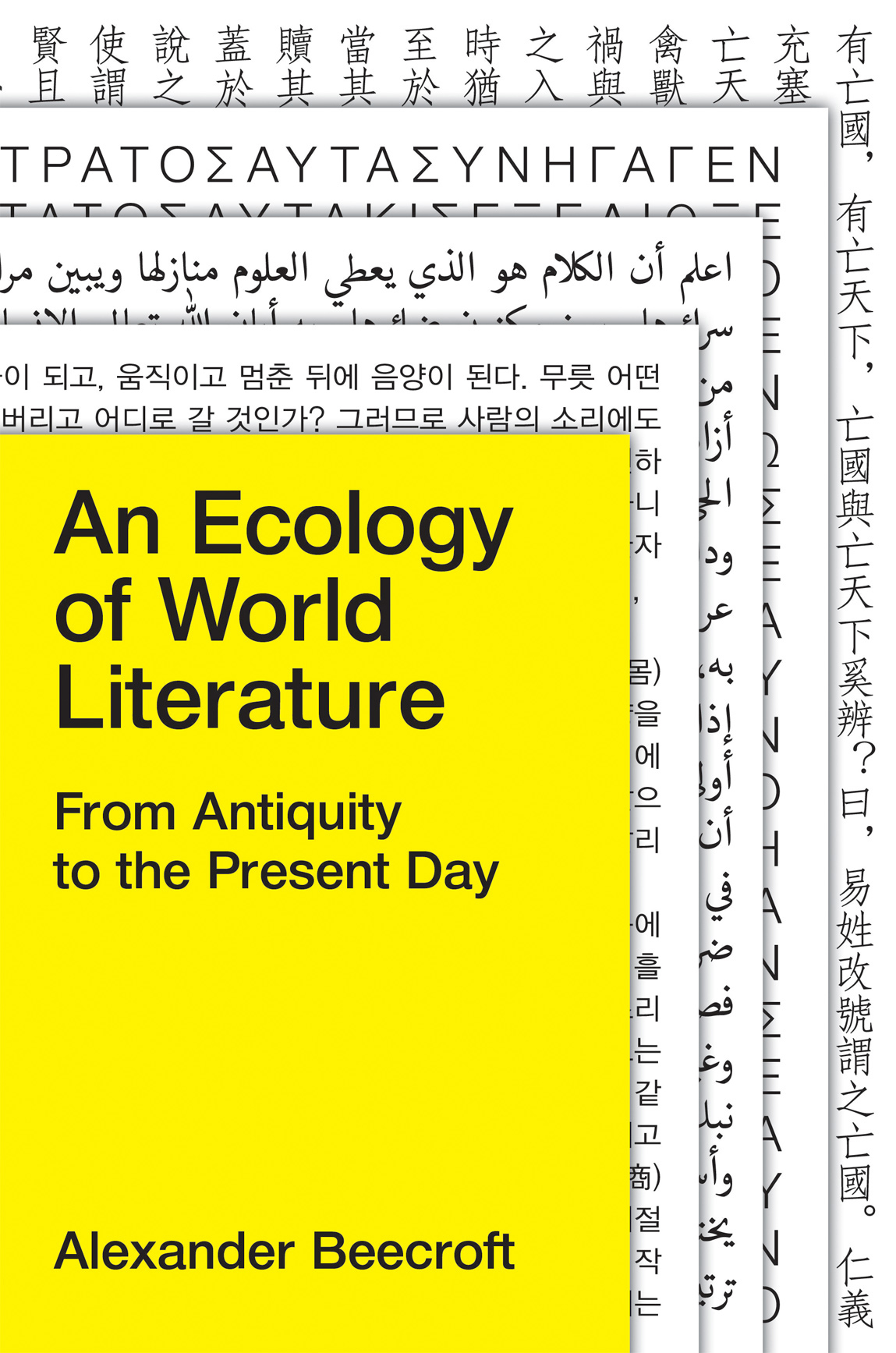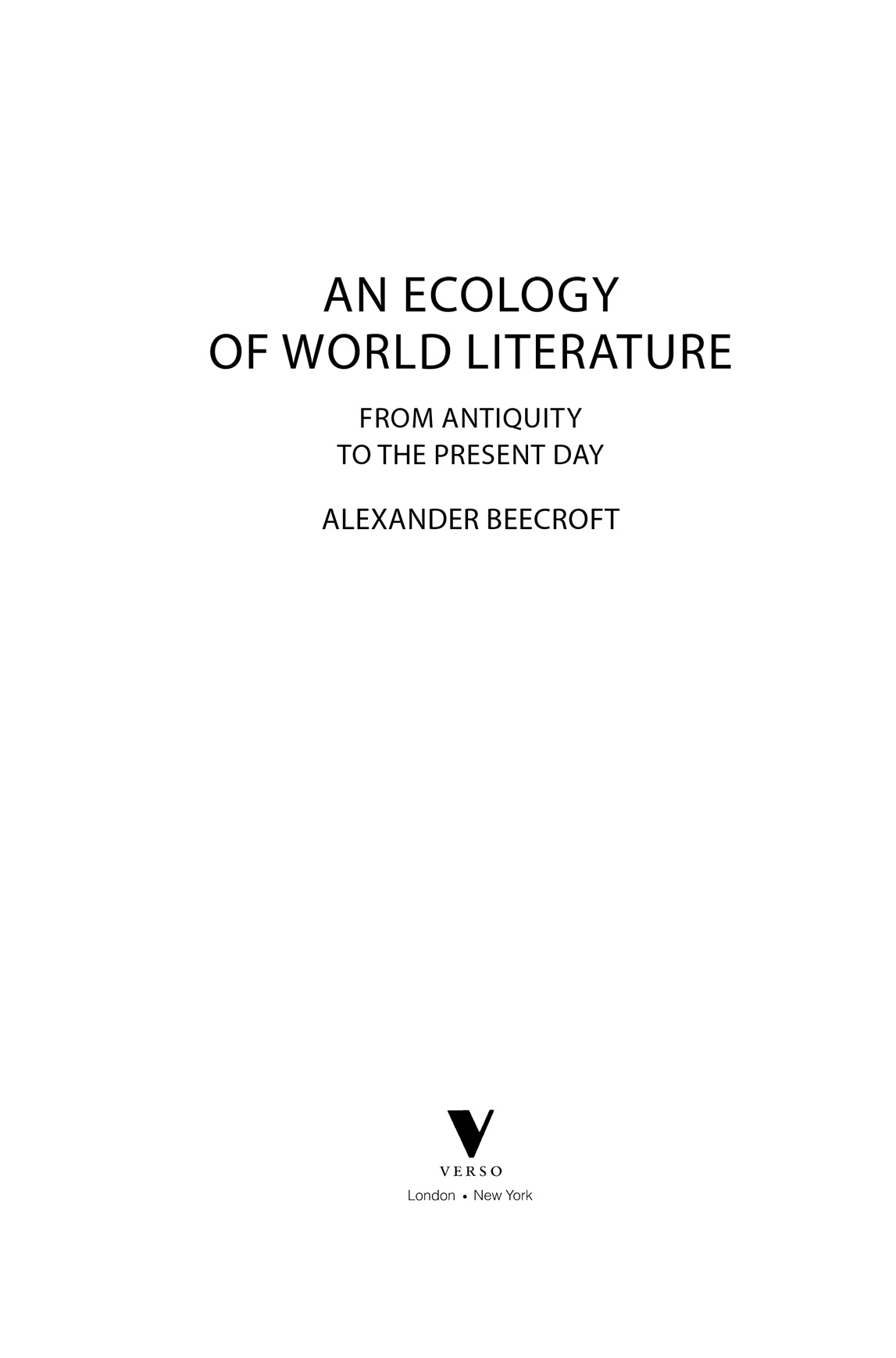First published by Verso 2015
Alexander Beecroft 2015
All rights reserved
The moral rights of the author have been asserted
Verso
UK: 6 Meard Street, London W1F 0EG
US: 20 Jay Street, Suite 1010, Brooklyn, NY 11201
www.versobooks.com
Verso is the imprint of New Left Books
ISBN-13: 978-1-78168-573-0 (PB)
ISBN-13: 978-1-78168-572-3 (HC)
eISBN-13: 978-1-78168-574-7 (US)
British Library Cataloguing in Publication Data
A catalogue record for this book is available from the British Library
Library of Congress Cataloging-in-Publication Data
Beecroft, Alexander, 1973 author.
An ecology of world literature : from antiquity to the present day / Alexander
Beecroft.
pages cm
Includes index.
ISBN 978-1-78168-573-0 (pbk.) ISBN 978-1-78168-572-3 (hardback)
1. Literature. I. Title.
PN45.E34 2015
809dc23
2014034308
v3.1
Contents
Acknowledgements
I began work on this project during my time in the Department of Comparative Literature at Yale University, and without the advice and encouragement of many people there, this book would never have been written, certainly not in anything like its current form. Katie Trumpener and Richard Maxwell generously opened their home to a small group who met regularly for a semester to discuss world literature as both a theoretical and a pedagogical project. All of us who attended (and so many more) remember fondly Richards passion for, and courage in, exploring and discussing new texts and literary traditions, and I hope my own work on the subject continues that passion and courage in some way. Bernard Bate introduced me to Tamil poetry and to the work of Sheldon Pollock, mind-opening experiences both. Kathryn Slanski, Eckart Frahm, Beatrice Gruendler, Moira Fradinger, and Ed Kamens endured my occasional pestering and requests for bibliography; all errors in these regards are, needless to say, my own. David Quint, Dudley Andrew, Haun Saussy, Pericles Lewis, Christopher Hill, Jing Tsu, Corinne Pache, Anne Dunlop, Kate Holland, and so many others, offered collegiality, advice, support, and friendship. Barry McCrea has had faith in this project from the beginning, has read and offered invaluable comments on portions of this manuscript, and has borne witness to the development of my thinking on the questions it addresses, in locations from the cocktail lounges of New Haven to the cafs of Venice.
When the time came to seek a new academic home, the Department of Languages, Literatures and Cultures at the University of South Carolina greeted me with kindness, generosity, and warmth. Paul Allen Miller has been a wise and insightful chair, colleague and friend. I have learned from the work of Michael Gibbs Hill on Lin Shu and Republican China, from Jeanne Garane on postcolonial French literature, from Stephen McCormick on medieval Lombard epic, and, more broadly, from Guo Jie, Krista van Fliet-Hang, Stephen Sheehi, Hunter Gardner, Jill Frank, Heike Sefrin-Weis, Catherine Castner, Yvonne Ivory, Andrew Rajca, Isis Sadek, Danny Jenkins, Kunio Hara, Brian Glavey, Catherine Keyser, and all of my colleagues, whose friendship I also cherish.
Work on this book was greatly facilitated by the award of a Charles A. Ryskamp Research Fellowship in the Humanities from the American Council of Learned Societies during the 201112 academic year, during which time a majority of the manuscript was written. Thanks are also due to the University of South Carolina for its generosity and flexibility in facilitating that leave so early during my time here. A visiting fellowship at Yale for that year allowed me the use of the Yale University Library system, invaluable for the purposes of a project such as this. Thanks are also due to the inter-library loan staff at the University of South Carolina Libraries, on whom this project made numerous and wide-ranging demands. Thanks are also due to Audrea Lim and Sebastian Budgen, and the rest of the staff at Verso Books, for their interest in the project and for their work on it.
Portions of this work have been presented to audiences at the University of Michigan, Pennsylvania State, the University of Notre Dame, and the University of Minnesota; in Salzburg, London, Santiago de Compostela, Heidelberg, Munich, Rome, Beijing, and Shanghai; as well as to annual conferences of the American Comparative Literature Association in Long Beach, Vancouver, Providence, and Toronto. I am grateful for the advice, encouragement, and commentary I have received in those contexts from (among so many others) Andrea Bachner, Shadi Bartsch, Adam Bohnet, Erica Brindley, Marcello Carastro, Jack Chen, Tamara Chin, Theo DHaen, David Damrosch, Wiebke Denecke, Marcel Detienne, Csar Domnguez, Jonathan Eburne, Jacob Edmond, Daniel Fried, Avishek Ganguly, Gao Fengfeng, Rivi Handler-Spitz, Eric Hayot, Margaret Higonnet, Christian Jacob, Alexander Key, Liu Jinyu, Rama Mantena, Kathryn Morgan, Carla Nappi, Thomas Nolden, Christopher Nugent, David Porter, Lisa Raphals, Ronit Ricci, Bruce Robbins, Shuang Shen, Richard So, Darryl Sterk, Karen Thornber, Jing Tsu, Wen Jin, Zhang Hua, Zhang Longxi, Zhang Wei, and Zhou Yiqun.
Finally, but most importantly, thanks are due to my family, particularly to my parents, Bill and Joyce Beecroft, for their love and support over the years. My partner, David Greven, has been at my side during the years of transition that were also the years in which this book was written; as always, it is his love, patience, and wise counsel that makes my work possible.
Introduction
A UTOBIOGRAPHICAL P ROLOGUE
This book has its origins in a confluence of interests, derived alike from my prior scholarship and from pedagogical imperatives. I began my scholarly career as a student of the literatures of or Chinese culture was larger by far than that of any polity then in existence, providing some measure of cultural solidarity to a politically fragmented world.
All three produced what seemed to me very valuable insights into how literature circulates across the large spaces of our contemporary world, but the discussions of Moretti and Casanova both focused almost exclusively on the literature emerging from the modern West and from the non-Wests reaction to Western modernity, and it was difficult to use their theories to understand the ways in which texts that were pre-modern or non-Western (or both) were circulated and understood. Damrosch does have a great deal to say about such texts but avowedly and deliberately from the perspective of how the modern West understands and makes use of them. The ideas of all three were provocative and stimulating, but I was left searching for a theoretical model that could make sense of things like the relationship between political fragmentation and cultural unity I had found in early Greece and China and that would be useful for constructing an undergraduate world literature course not taking as its premise the value we, as modern readers, add to the texts we read.
In the context of that reading on world literature, I was also introduced to the work of the vernaculars of North India (a phenomenon he calls the vernacular millennium).
In reading Ecology of World Literature, and in the remainder of this introduction I hope to explain this project more fully by means of a series of questions. I begin by discussing an interlocking set of questions (What is a language? What is literature? and What is a literature?) before moving on to consider what I mean by ecology and why I use the term, a discussion that itself divides into several parts. I finish this introduction by revisiting the six ecological patterns I listed earlier, describing them in some detail and setting out thereby the structure for the six chapters of this book.


